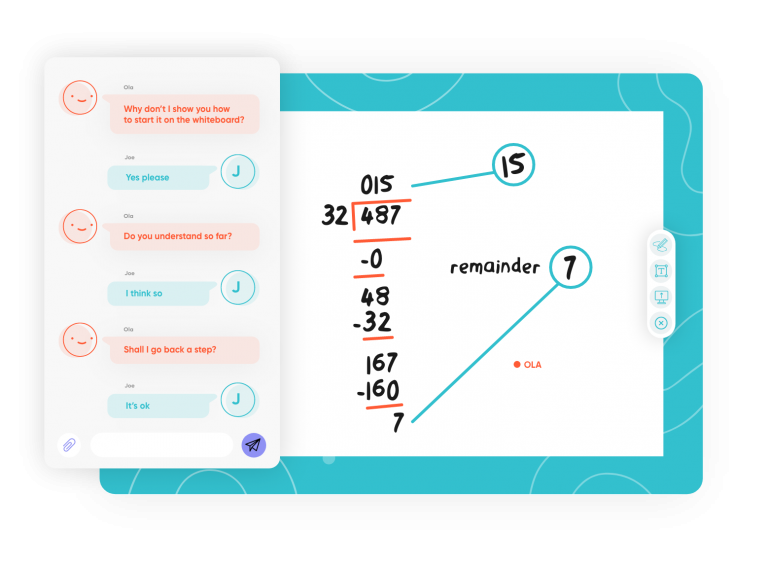Unlimited access
Weekdays 3pm – 9pm
Weekends 9am – 9pm
Unlimited questions;
unlimited answers.
Supporting student learning, wellbeing and more.
Access anywhere. Cancel anytime.

Safety is our top priority
Our Online Learning Assistants (OLAs) are screened through our comprehensive vetting and safeguarding procedure, so you can rest assured that students are in safe hands. They won’t be asked to communicate using cameras or microphones, and all conversations are recorded for monitoring purposes.






